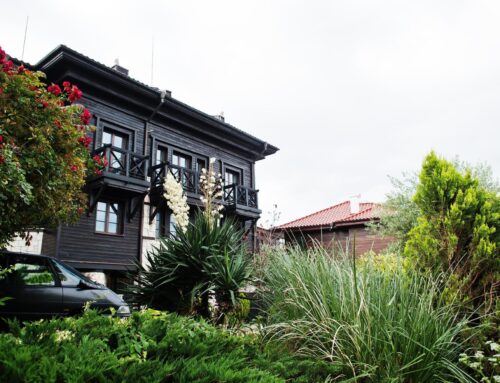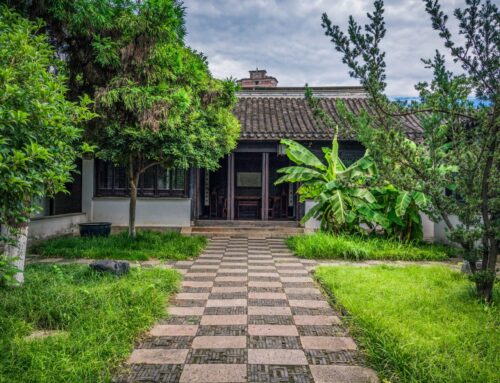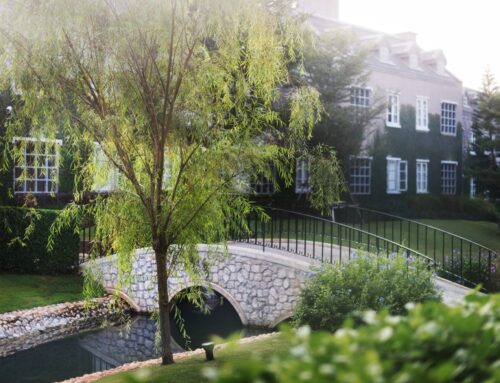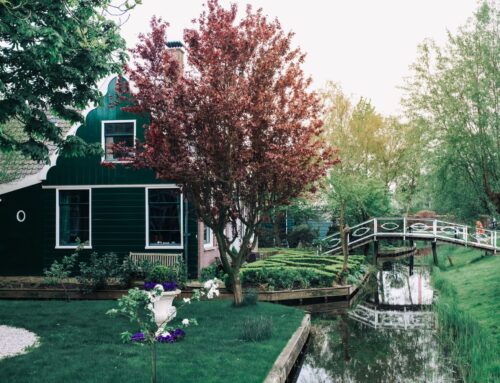Introduction
Sustainable landscaping is more than a trend; it’s a movement toward creating outdoor spaces that are both beautiful and environmentally responsible. By adopting eco-friendly practices, homeowners can conserve resources, support local ecosystems, and reduce their environmental footprint. This guide explores the principles of sustainable landscaping, practical tips for implementing green practices, and how Harris Landscapes can help transform your yard into an eco-friendly haven.
Why Choose Sustainable Landscaping?
- Resource Conservation: Sustainable landscaping focuses on efficient use of water, energy, and materials, helping reduce waste and environmental impact.
- Support for Local Ecosystems: Native plants and eco-friendly practices support local wildlife and reduce the need for pesticides, promoting a healthier ecosystem.
- Cost Savings: Over time, sustainable landscaping can save money on water, fertilizers, and maintenance costs by prioritizing low-maintenance plants and efficient systems.
- Environmental Responsibility: Sustainable practices reflect a commitment to the environment, minimizing pollution and conserving natural resources.
Key Elements of Sustainable Landscaping
- Native and Drought-Resistant Plants
Choosing native or drought-resistant plants reduces water consumption and maintenance. These plants are adapted to the local climate, requiring less water, fertilizer, and pesticides.- Benefits: Lower water usage, reduced need for chemicals, support for local pollinators.
- Examples: Look for regional wildflowers, grasses, shrubs, and trees that thrive naturally in your area.
- Efficient Irrigation Systems
Smart irrigation systems, such as drip irrigation and weather-based controllers, deliver water directly to the roots, reducing water waste.- Drip Irrigation: Delivers water slowly to the plant roots, minimizing evaporation and runoff.
- Rain Sensors: Automatically adjust watering schedules based on rainfall, conserving water when it’s not needed.
- Composting and Organic Fertilizers
Using compost and organic fertilizers reduces the need for chemical treatments, providing plants with natural nutrients and improving soil health.- Benefits: Enhances soil structure, supports beneficial organisms, reduces landfill waste.
- Compost Ingredients: Use kitchen scraps, yard waste, and other organic matter to create nutrient-rich compost.
- Mulching
Mulch is a natural cover for soil that helps retain moisture, regulate temperature, and prevent weed growth.- Benefits: Reduces water evaporation, protects plants from extreme temperatures, and enriches soil as it decomposes.
- Types of Mulch: Use organic mulch such as bark, leaves, or straw, which decomposes over time, improving soil quality.
- Rain Gardens and Permeable Paving
Rain gardens and permeable paving allow water to filter into the ground, reducing runoff and recharging groundwater supplies.- Rain Gardens: These landscaped areas are designed to absorb rainwater, filtering out pollutants and reducing erosion.
- Permeable Paving: Made from materials that allow water to pass through, permeable paving prevents water pooling and supports healthy drainage.
Steps to Implementing a Sustainable Landscape
- Assess Your Site
Begin by evaluating your yard’s sunlight, soil type, and natural water flow. Understanding these factors helps you choose appropriate plants and design elements. - Select Native Plants and Eco-Friendly Materials
Choose plants that thrive in your area without needing excessive water or chemicals. For pathways and patios, use natural or recycled materials like stone, gravel, or reclaimed wood. - Install Efficient Irrigation
If you’re upgrading your watering system, consider a drip irrigation system or soaker hoses that deliver water directly to the roots, minimizing waste. - Incorporate Compost and Mulch
Use compost to enrich the soil and mulch to protect plant roots, retain moisture, and prevent weeds. A 2-3 inch layer of mulch is ideal for most garden beds. - Create a Rain Garden or Use Permeable Surfaces
Direct rainwater to a designated rain garden or use permeable paving to allow water to infiltrate the ground rather than run off into storm drains.
The Role of Harris Landscapes in Sustainable Landscaping
At Harris Landscapes, we’re dedicated to helping clients create sustainable outdoor spaces that benefit both the environment and their property. Here’s how we support eco-friendly landscaping:
- Eco-Conscious Design: Our landscape designs incorporate native plants, efficient irrigation systems, and other sustainable practices customized to your property’s unique needs.
- Expert Plant Selection: We help clients select native and drought-tolerant plants that thrive in local conditions, promoting a resilient, low-maintenance landscape.
- Installation of Green Infrastructure: From rain gardens to composting setups, we install green infrastructure that conserves resources and reduces environmental impact.
- Comprehensive Maintenance Plans: Our sustainable maintenance plans prioritize eco-friendly practices, such as organic fertilizing, seasonal mulching, and water-wise irrigation adjustments.
Common Questions About Sustainable Landscaping
- What Is the Difference Between Native and Drought-Resistant Plants?
Native plants are species that naturally occur in a specific region, while drought-resistant plants can survive with minimal water. Many native plants are also drought-resistant, making them ideal for sustainable landscapes. - How Much Water Can I Save with Sustainable Landscaping?
Sustainable landscapes can reduce water use by up to 50% or more, depending on factors like plant selection, irrigation system, and mulching practices. - What Are the Initial Costs of Sustainable Landscaping?
The initial investment varies depending on the scope of the project, but sustainable landscapes often reduce long-term costs in water, fertilizer, and maintenance. - Can Sustainable Landscaping Increase Property Value?
Yes, a well-designed sustainable landscape enhances curb appeal and may increase property value by making the home more attractive and eco-friendly.





